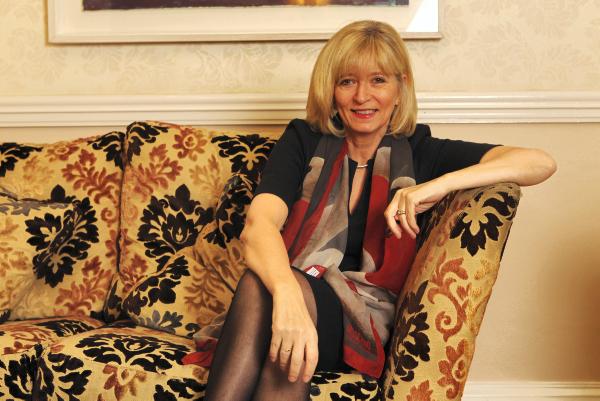When Emily O’Reilly decided to become a journalist, it was recommended that she should take up typing to secure secretarial work. Having no intention of being confined to a reception desk, she made sure not to learn.
“I reckoned if I couldn’t type, no one could hire me to be a secretary or a typist. So I decided not to bother,” she smiles.
It was a good call. Had she heeded the advice, Emily wouldn’t have worked as a journalist for 20 years, reporting for a number of national titles, nor would she have served as ombudsman for 10 years.
“It never crossed my mind that I wouldn’t have a career. Why wouldn’t I?” she asks.
School
“I left school in 1975, only two years after the marriage bar was lifted. I went to a very ordinary school, but girls in my class went on to become architects and engineers,” she continues. “You can’t grow up being reasonably clever and engaged with the world and think that it all has to come to a grinding halt at some point.”
Emily was born in Tullamore, Co Offaly, and moved to Dublin with her family at the age of eight. Shy and bookish as a child, it seemed unlikely that she would pursue a career in the public eye, and after completing a degree in languages at Trinity College, she spent some time working as a teacher in France.
“In the year I spent abroad after college, I reflected and found that everything I was interested in pointed towards a career in journalism. Though I was very shy, my father was hugely interested in politics and he encouraged that in me. I was even following elections as a child.”
Despite her reserved nature, she will be remembered as a vocal ombudsman and for criticising the lack of transparency in Government. She was able to happily leave the office knowing that changes in Freedom of Information (FoI) legislation were going to be introduced to include more State bodies, including the gardaí and third-level institutions.
“I was never measured in terms of how many people knew about the ombudsman, but I imagine I did raise the profile of the office,” she says. “The odd time I would make a speech that wasn’t quite within the normal parameters of the role, but I was in a position of leadership, so I was going to do that.
“I had big issues with the Department of Health. I didn’t agree with them and they didn’t agree with me. Cases weren’t being heard in court because the department kept settling, and that in itself wasn’t fair. There was a lack of leadership and courage, and a reluctance to face up to reality.
Children
“Also, I’m a woman and have five children so I am intimately involved with society on many levels, from health to education. It is quite something to bring up five emotionally healthy young people in this society where the rules have dissipated. As a colleague of mine used to say: live it, don’t laminate it.”
She describes her time as ombudsman as a “decade of full and plenty”, starting at the height of the Celtic tiger in 2003 and working through the recession.
“It wasn’t until 2008 that things started changing, but it was quite striking,” she says.
“A lot of people were trying to access medical cards and other benefits for the first time ever. Because of the sudden influx, the system wasn’t able to cope. There were a lot of issues because the rules hadn’t changed but discretion started to come into play.
“I often heard people say: ‘I got that last year, why can’t I this year?’ That causes great stress. The Government and department agencies should be open and honest – that’s the least they owe people during a period of great stress.”
European Ombudsman
Appointed as European Ombudsman last year, Emily is based in Strasbourg during the week and comes home at the weekend to spend time with her family (and be dragged to Penneys by her daughters). Similar to her previous role, she investigates claims made against EU institutions, bodies, offices and agencies.
“The difference is the multi-cultural aspect. I’m trying to stop saying ‘at home we do this’, because you have to respect different views and cultures,” Emily explains. “Countries take a radically different view on transparency – for example, the Scandinavians are quite open while the Germans, because of their history, are very conservative about the release of private information.”
Emily believes that EU membership is very important to Ireland.
“We’ve soured on Europe because of the troika experience, but I think this country would be very poor without the EU,” she says.
“For women of my generation, Europe meant liberation because of equality legislation, and the Government was dragged kicking and screaming into it.”
What will be next for the woman who was famously nicknamed “blonde ambition” by PJ Mara?
It has been suggested that the Áras is in Emily’s sights, though she denies any intention of running for presidency.
“I don’t have a life with a regular rhythm, but it’s very privileged,” she says. “Every woman makes her own choice, depending on what they find fulfilling. It’s a question of what you want. And I couldn’t care less about the blonde ambition thing.”
